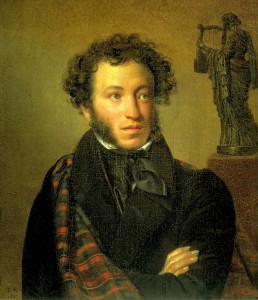 When one thinks of acclaimed writers of the past, few on the western side of the hemisphere would be able to come up with the name of the Russian Romantic poet, Alexander Pushkin. But in Russia, Pushkin is revered as the poet of “Everyman,” expressing the whole of Russian heritage in many of his esteemed masterpieces, such as the poem The Bronze Horseman or his only novel, Eugene Onegin.
When one thinks of acclaimed writers of the past, few on the western side of the hemisphere would be able to come up with the name of the Russian Romantic poet, Alexander Pushkin. But in Russia, Pushkin is revered as the poet of “Everyman,” expressing the whole of Russian heritage in many of his esteemed masterpieces, such as the poem The Bronze Horseman or his only novel, Eugene Onegin.
Due to few adequate translations, Pushkin remains shrouded in mystery despite his poems having the same exemplary craftsmanship recognized in Shakespeare’s sonnets and Keats’ love poems. But his cult in present-day Russia also didn’t used to exist. In a disconnected country, viewed as “backward” by the western half of Europe, Pushkin already stood little chance of making an impression when the rest of the world was on to the next writing fad of the 19th century. He was also, for the most part, ignored in Russia, as his “pure poetry” was not radical enough after the Decembrist revolt of 1825, which gave birth to a school of writing about the moral and political issues of the time. It wasn’t until Dostoevsky’s celebrated eulogy of him during the erection of a Pushkin monument in Moscow in 1880 that Pushkin became the representative poet of the Russian people.
Discover the full story of the rise and fall of Pushkin’s reputation as a writer and why the article’s author, A.F.B. Clark, thinks Pushkin is the “Mozart of literature” in “Alexander Sergeyevitch Pushkin,” which appeared in the 1937 edition of the University of Toronto Quarterly.
Comments on this entry are closed.